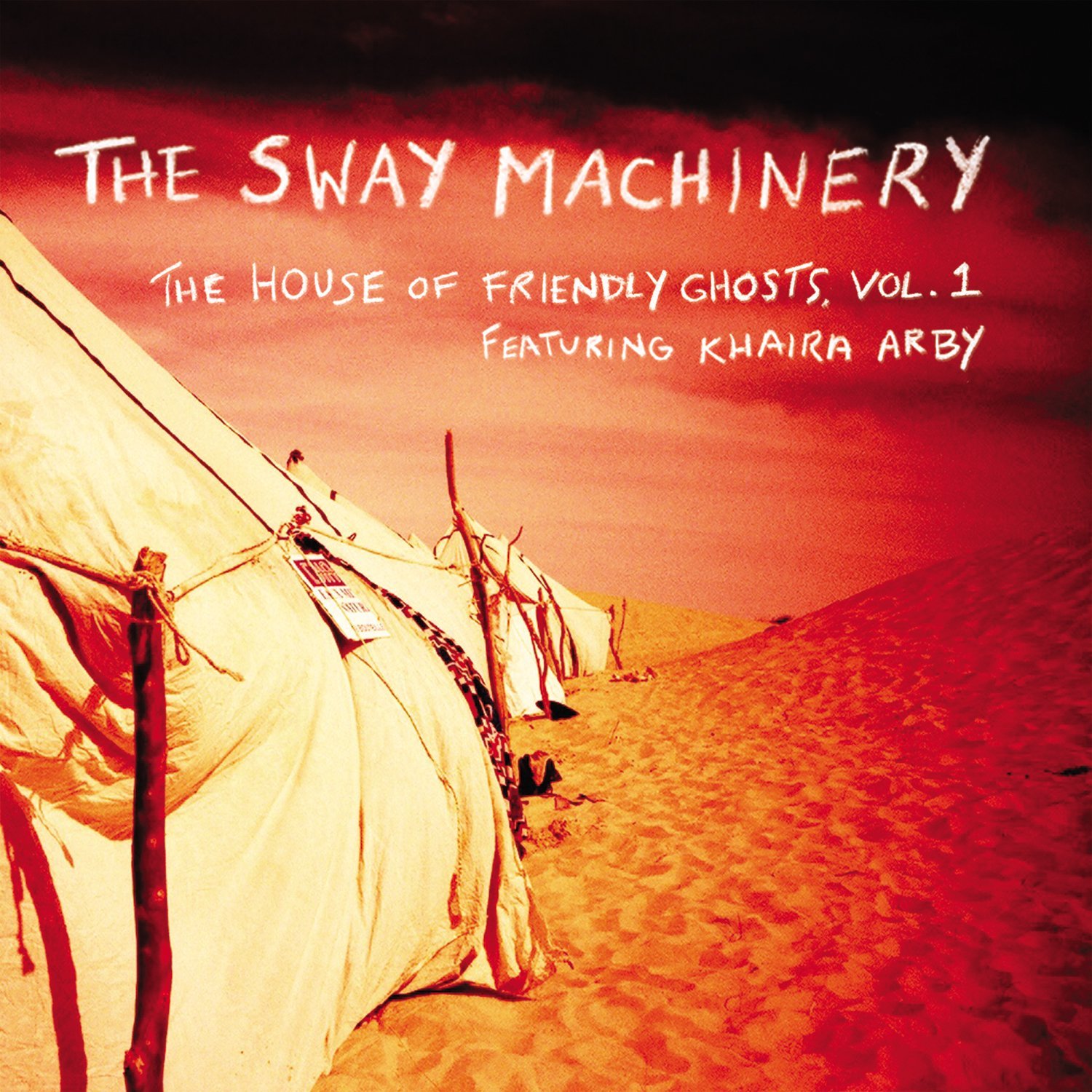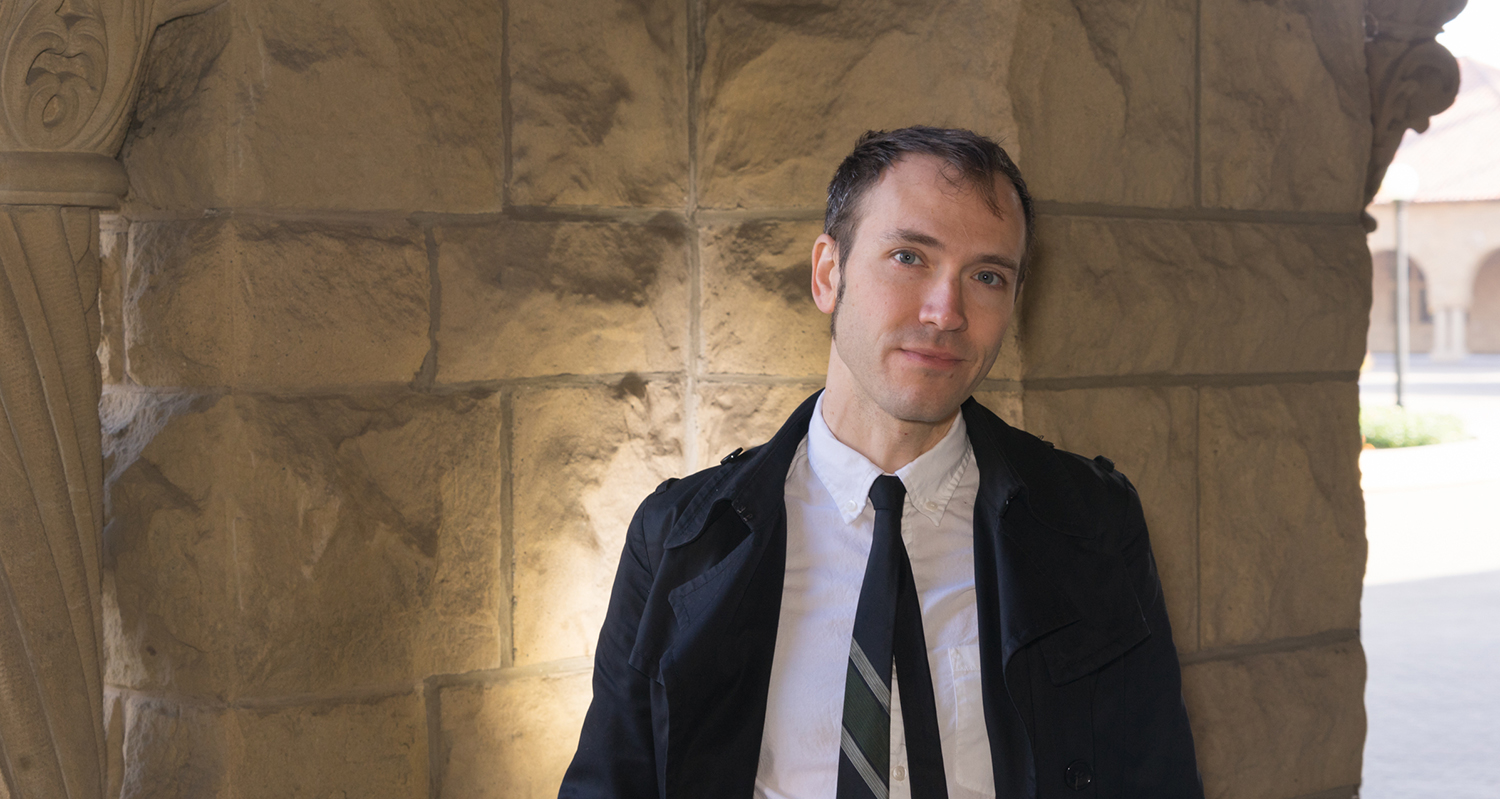As a doctoral candidate in the Graduate School of Education, Jeremiah Lockwood studies how young musicians and their audiences construct Jewish identity by revisiting the golden age of Jewish cantorial music.
As a musician himself, Lockwood constructs Jewish identity through the genre- and boundary-defying sound of his acclaimed rock band, The Sway Machinery.
Both as scholar and as practitioner, Lockwood explores the idea of diaspora interacting with a personal artistic vision. In both roles, he exemplifies the Graduate School of Education’s exploration of human culture through the lens of teaching and learning.
Both threads of Lockwood’s work invite what he calls “a larger dialogue of what Jewishness in America is supposed to sound like.”

For Lockwood’s subjects – and Lockwood himself – make music very different than what most U.S. Jews hear in synagogue today.
Centrality to culture
In the 1910s and 1920s, classically trained cantors emigrated to the United States from central and eastern Europe, part of a wave of artists, scientists and other professionals whose search for freedom vastly enriched American cultural life.
These cantors were skilled improvisers in material with a centuries-old history. They were further valued for their skill as performers of new synagogue music that synthesized older Jewish music with European classical sounds imported from opera and church music. The arrangement, interpretation and critical reception of these cantorial works shifted – and shifts once more – with the individual and the times.
U.S. congregations welcomed these great vocalists. Discerning audiences hopped between synagogues to compare the style and intonation of the cantors in each. Many cantors forged great recording and performing careers, filling secular concert halls. Tellingly, the tale of a cantor’s son who bridges Jewish and secular worlds grounds the plot of the world’s first talking feature film, 1927’s The Jazz Singer. Great cantor Yossele Rosenblatt sings in a cameo role, a revelation of the cantor’s importance to the era’s cultural life.
In the 1960s and 70s, however, as these cantors died out and the Baby Boom came of age, a new, folksy sound swept U.S. Jewish practice that was easy to sing and helped make worship seem accessible, participatory and relevant.
In the past 15 years, a crop of young Chassidic Jewish singers have taken up classic-era cantorial styles in a revival of this seemingly declining tradition. They study 78rpm recordings of great cantors, put their own performances on YouTube and draw large digital followings.

“Their work is about reclamation in the face of change,” says Lockwood, a student in the GSE’s Concentration in Education and Jewish Studies.
“I’m interested in how they learned from the resources available, what their community of practice looks like when the art you practice is practiced primarily by dead people.”
Navigating contradictions
Some of the cantors Lockwood has gotten to know, like Yanky Lemmer, have built significant international careers. Lockwood is interested not just in their music but in how these musicians navigate the apparent contradictions of individual and collective identity, of life in a neighborhood-based, Yiddish-speaking religious community with the life of a world-class artist.
“It’s a job, but it’s also a religious practice. Is it or is it not a dichotomy?” Lockwood asks. “Does music allow them to engage in behaviors that would otherwise be prohibited? Is it a proxy for other kinds of art-and-life experience?
“I’m interested in how far you’re willing to reach outside your own community and still maintain an identity in that community without pushback,” Lockwood says.
“Indigeneity and ambition are not necessarily at odds with each other.”
Lockwood grew up in New York City, singing in the choir of his grandfather, cantor Jacob Konigsberg. “I feel that cantorial music tells my story,” he says. He chose a different sonic path, apprenticing on blues guitar in the New York subways with acclaimed bluesman Carolina Slim. This study gave him the template for his investigations of 21st- century Jewish musical identity.
“Jeremiah’s research breaks new ground around the question of how tradition is both transmitted and innovated upon,” says Ari Kelman, the Jim Joseph Professor of Education and Jewish Studies in the Stanford Graduate School of Education. “By looking at Jewish cantors, Jeremiah has found a population that is deeply committed to religious tradition and to the artistry and creativity of musical expression.
"Jeremiah is asking how they learned to master traditional liturgies, both musical and textual, and how they put that knowledge into practice in the context of a worship service,” Kelman says.
“The tension between the acquisition of traditional knowledge and the application of that knowledge in a contemporary synagogue opens up new and exciting opportunities for understanding a host of broader questions about the transmission and evolution of religious knowledge, practice, and commitments.”
Lockwood and The Sway Machinery often have song lyrics in liturgical Hebrew. They’ve also jammed with Malian band Super Khoumeissa at the Festival au Desert in Timbuktu and collaborated with Malian vocalist Khaira Arby, the “Queen of Desert Blues.”
“Diaspora expressed through individual practice,” Lockwood says. “That’s what interests me.”
-- Barbara Wilcox
Watch the video of “My Angel’s House,” from Lockwood’s band The Sway Machinery
Watch Yanky Lemmer sing Zochreinu L'chaim with the Jerusalem Cantors Choir in Budapest
Hear a clip from Golden Age cantor Simcha Kusevitsky’s version, recorded on 78 rpm
Watch Yanky Lemmer in Krakow, singing the Sh'ma Yisrael arranged by Golden Age cantor Leib Glantz
Hear Glantz’s version of his own composition, recorded in 1929.

